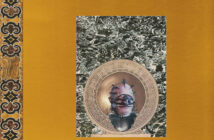
Do you need another reason to dislike Bono, aside from his dire musical output and carefully constructed watered down Jim Morrison stage persona? Well probably not, but there’ something about his righteousness, the presumptuous belief that his consistently inane music somehow qualifies him to traverse the world stage hobnobbing with world leaders in his self styled role as “the’ quintessential celebrity do gooder.
Have you ever wondered exactly what he’ doing out there? He appears to be trying to improve things, to use his celebrity to further unsexy issues like HIV and global poverty. But his activities, like his music, are a vague blur of anthemic popularist statements fashioned to give the appearance of meaning, without necessarily standing for anything. Of course if his music was any more pedestrian it would be in a wheelchair, though his actions may be a little more insidious.
Irish journalist Harry Browne has for the large part ignored the music and honed in on Bono the celebrity campaigner and his access to the corridors of power. The Frontman: Bono (In The Name of Power) is a nasty little examination beneath the self-constructed myths, examining the numerous inconsistencies that pepper his career.
He argues that Bozo, as Sinead O’Connor refers to him, is a man “who has turned his attention to a world of savage injustice, inequality and exploitation – and helped make it worse.â€
Browne paints a picture, looking at Bono and U2′ origins in Ireland, where they were less freedom fighters than middle class prayer group participants. In particular he examines the purposely vague Sunday Bloody Sunday and asks where exactly they stood. Of course Bono would say he stands for peace, and the futility of war, but subsequent appeasement of warmongers and his repeated desire to use his proximity to the struggle in Ireland to underline his authority on whatever topic is at hand, tends to dilute the argument somewhat. Browne paints Bono as a fence sitter on the difficult issues, only making opportunist statements once populist support is assured, and then pretending he’d been fighting the good fight all along.
It’s hardly balanced, there’ too much joy in his failures. He recounts a tale from a concert where Bono started clapping his hands. “Every time I clap my hands a child in Africa dies,†he proclaims earnestly. “Well stop fucking clapping then,†came a reply from the audience.
Browne notes with bemusement the movement of the majority of U2′ financial activities to Amsterdam to avoid Irish taxes when concessions for artists were wound back. At this stage U2 were a multi million dollar corporation, hardly the struggling artists that the concessions were designed for. It was a strange move for such a proudly Irish group, yet Browne notes with some relish how wounded Bono felt with the subsequent public uproar.
The book really becomes troubling when it delves into Live Aid and beyond, when Bono truly went global. Bono’ view of global poverty is colonial cliché, Africa as the helpless victim with the West their benevolent saviour. His solutions are neo liberal, couched in corporate development and imperial exploitation. Solutions by middle aged white billionaires, with nary an African in sight. It’s here that the books title becomes clear, Bono isn’ just the frontman for U2, he’ the frontman for the status quo.
Bono’ reputation as the rock star who cares has been cheerfully exploited by leaders the world over. It’s credibility by association and it works both ways. Mates like George Bush, Bill Clinton, and Paul Wolfowitz (former world bank president), once in the Bono glow, not only look to be serious about addressing poverty, but are also dusted with that rock star sheen – even if little changes on the ground. Bono too has his status reinforced as a mover and shaker.
Browne suggests that though Bono may view himself as representing the 99%, his wealth, business interests, foundations and friendships place him firmly within the select club of the 1%. It’s a nasty and frequently hilarious book, though it’s also the first comprehensive study of Bono’ business and campaigning activities, which is frequently reported on in the media with a kind of wilful blindness. It’s horribly skewed, yet Bono’ earnestness coupled with an ego that so clearly outweighs his talents, results in one important thing: You want to believe .



